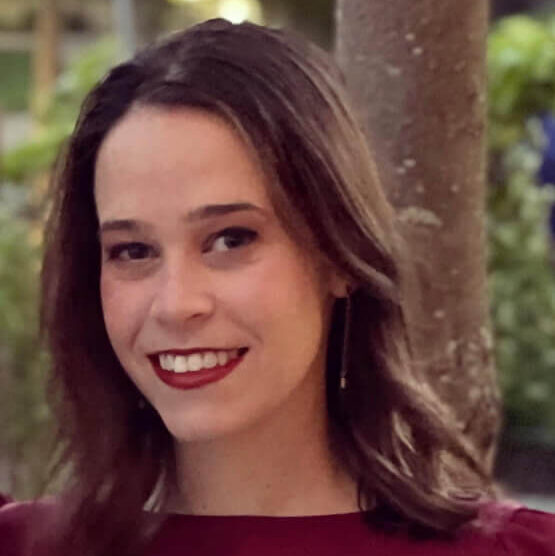I was halfway through the third year of my PhD, and I was in a rut.
I would not go as far as to say I was unhappy but bored and unfulfilled.
It took some introspection, but I recognized that isolation and lack of variety were the foundation to my boredom.
Although challenging, my bench work was repetitive and solo, no longer punctuated by teamwork, mentoring, and classes as it had been previously. Settled into my niche, I was no longer literature searching to learn about new areas of research. I also wasn’t writing, a part of the scientific process I inexplicably enjoy.
I would not go as far as to say I was unhappy but bored and unfulfilled.
It took some introspection, but I recognized that isolation and lack of variety were the foundation to my boredom.
Although challenging, my bench work was repetitive and solo, no longer punctuated by teamwork, mentoring, and classes as it had been previously. Settled into my niche, I was no longer literature searching to learn about new areas of research. I also wasn’t writing, a part of the scientific process I inexplicably enjoy.
Time for a change.
If I was going to feel fulfilled and happy as a PhD student, I needed to pursue a venture outside the laboratory that satisfied my scientific curiosity and got me writing again. I decided to start a science communication blog after receiving advice from a science writer that blogging can be a launching point into a science communication career.
Before starting my blog, I did some research. I signed up for Twitter and connected with plenty of scientists, doctors, and academics. I checked out other science and academic blogs and found that many blogs struggled to produce consistent content. I realized I initially underestimated the time and effort needed to maintain a successful blog and began to doubt that I could pull it off. Instead, I searched for blogs that allow guest writers with no luck. If I was having this problem, many other aspiring science writers might also be struggling to find platforms to share their work. Hence, the idea of starting a collaborative blog was born.
Before starting my blog, I did some research. I signed up for Twitter and connected with plenty of scientists, doctors, and academics. I checked out other science and academic blogs and found that many blogs struggled to produce consistent content. I realized I initially underestimated the time and effort needed to maintain a successful blog and began to doubt that I could pull it off. Instead, I searched for blogs that allow guest writers with no luck. If I was having this problem, many other aspiring science writers might also be struggling to find platforms to share their work. Hence, the idea of starting a collaborative blog was born.
Unforeseen benefits:
Bolded Science is a collaborative blog I started in the winter of 2019. I write blog posts for the site, but I also invite scientists to pitch and write posts. The collaborative nature of the blog enables a steady stream of diverse content that I could never accomplish on my own. Bolded Science was a creative outlet that made me appreciative of my scientific background. In managing the website, I began to shake my third-year slump. Surprisingly, running Bolded Science has had tremendous outcomes I did not expect:
1. Networking: I’ve met many amazing scientists from around the world. Like me, Bolded Science writers enjoy writing, telling stories, and advocating for change. Unlike me, Bolded Science writers are from around the globe and specialize in all different kinds of science.
2. Expanding my science communication: Blogging has opened new doors for me such as, participating in panel discussions, hosting twitter science chats, podcasting, and consulting.
3. Learning: I enjoy reading about research and science-related topics. But I don’t do it nearly enough! By running a collaborative blog, I routinely read and edit articles about topics ranging from bird poop to potential vegan vaccines to artificial insemination of endangered species.
4. Meeting the blogging community: The blogging community is incredibly supportive and collaborative. Most of us don’t see each other as competitors but colleagues. I’ve collaborated and networked with amazing bloggers such as Sheeva Azma of The Fancy Comma, Nidhi Parekh ofThe Shared Microscope, and of course, Nath H-Clarke of The PhD Place.
1. Networking: I’ve met many amazing scientists from around the world. Like me, Bolded Science writers enjoy writing, telling stories, and advocating for change. Unlike me, Bolded Science writers are from around the globe and specialize in all different kinds of science.
2. Expanding my science communication: Blogging has opened new doors for me such as, participating in panel discussions, hosting twitter science chats, podcasting, and consulting.
3. Learning: I enjoy reading about research and science-related topics. But I don’t do it nearly enough! By running a collaborative blog, I routinely read and edit articles about topics ranging from bird poop to potential vegan vaccines to artificial insemination of endangered species.
4. Meeting the blogging community: The blogging community is incredibly supportive and collaborative. Most of us don’t see each other as competitors but colleagues. I’ve collaborated and networked with amazing bloggers such as Sheeva Azma of The Fancy Comma, Nidhi Parekh ofThe Shared Microscope, and of course, Nath H-Clarke of The PhD Place.
A hobby evolving into a career.
Now that my PhD is coming to an end, I am actively pursuing science communications jobs. In pivoting from research, I’m often asked if I am sure I am making the right choice. My answer is always an unequivocal, “Yes!” I’ve had success in research and could have a successful career continuing down that path. But in recent years I’ve learned it’s important to make career choices based on joy rather than talent alone.
My advice to any early career researchers?
Work consistently at your research but take time for career development outside of your traditional responsibilities.
Sometimes, the best opportunities during your PhD are not handed to you.
My advice to any early career researchers?
Work consistently at your research but take time for career development outside of your traditional responsibilities.
Sometimes, the best opportunities during your PhD are not handed to you.
They are the ones you create yourself.




